Does Super Glue Work On Metal : A Strong and Durable Adhesive Connection
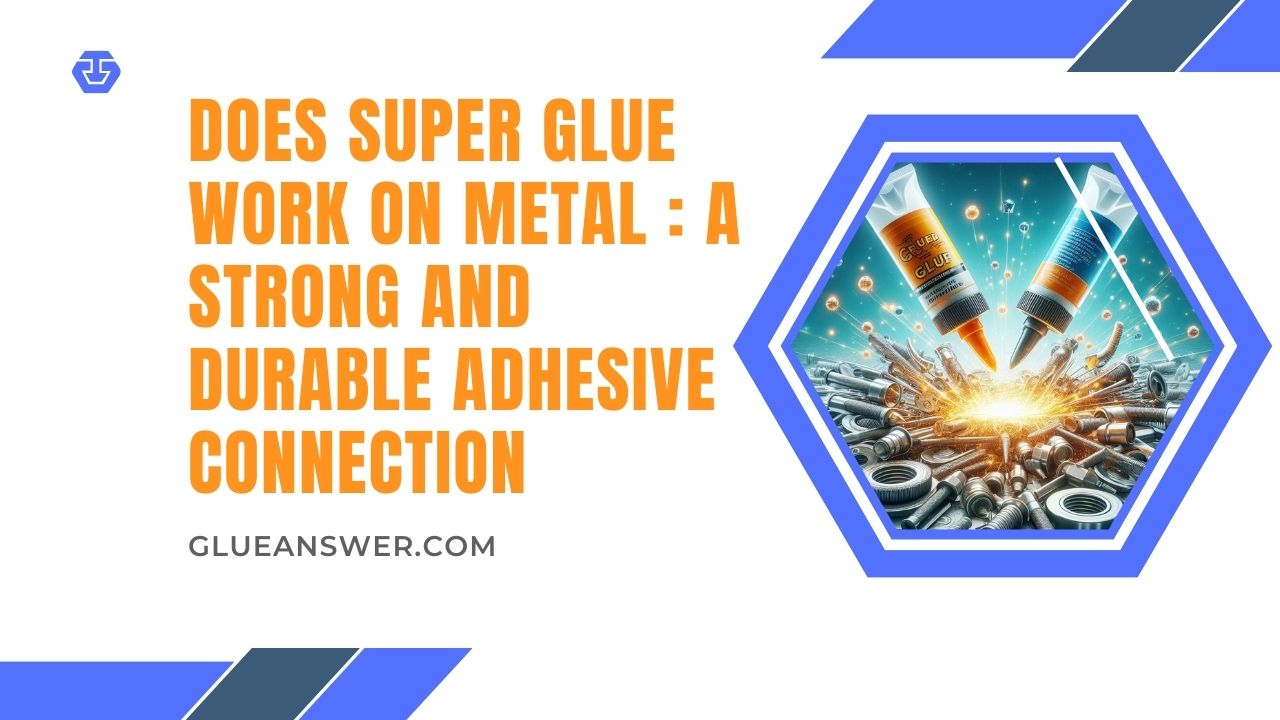
Does Super Glue Work On Metal?
Yes, super glue can work on metal. It forms a fast and strong bond between metal surfaces, making it suitable for various applications like repairing small cracks, attaching decorative elements, or securing loose parts.
Super glue can work on metal, but it depends on several factors:
- Type of metal: Super glue works best on smooth, clean metals like aluminum, brass, and steel. It may not adhere well to rough or oxidized metals.
- Type of super glue: Some super glues are specifically formulated for metal, while others are not. Look for products labeled “metal glue” or “super glue for metal.”
- Size of the gap: Super glue works best for small gaps (less than 0.01 inches). If you have a larger gap, you’ll need a different type of adhesive.
- Strength and durability: While super glue can create a strong bond, it might not be as strong or durable as other adhesives like epoxy for long-term use or applications that experience stress.
- Exposure to elements: Super glue is not typically waterproof or heat-resistant. If your project will be exposed to water, heat, or harsh chemicals, you’ll need a different type of adhesive.
Here’s a summary:
- Super glue can work on metal in some cases.
- Consider the type of metal, super glue, gap size, strength requirements, and exposure to elements.
- For best results, choose a super glue specifically formulated for metal.
- For larger gaps, high stress, or exposure to elements, consider other adhesives like epoxy.
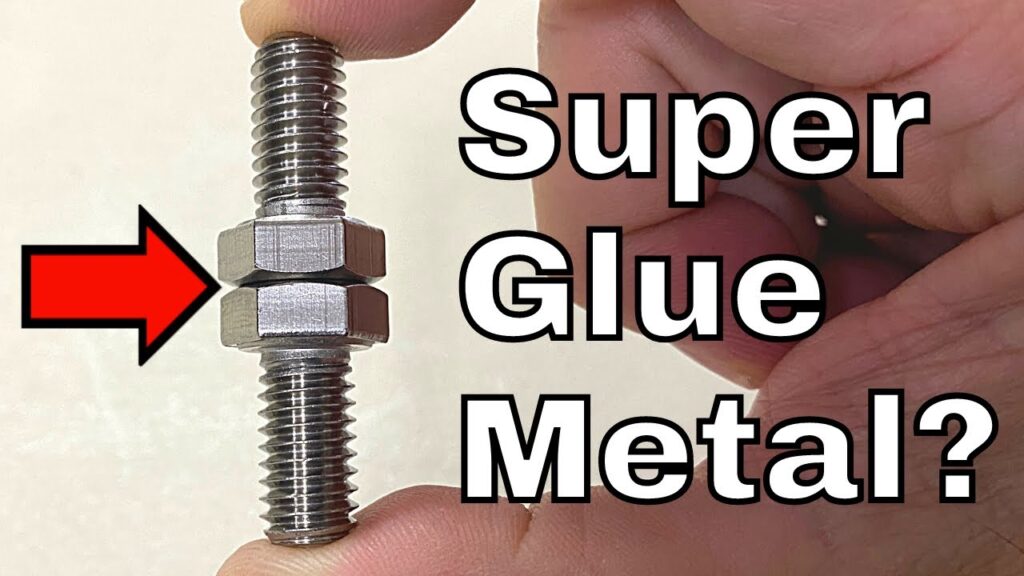
Does Super Glue Work On Plastic?
Super glue works on some plastics, but not all. It struggles with low surface energy plastics like polypropylene and polyethylene. Sanding the surface beforehand can improve adhesion for certain types.
- Works well: ABS, PVC, PET (with proper preparation)
- Limited effectiveness: Polycarbonate (PC), Nylon
- Doesn’t work well: Polyethylene (PE), Polypropylene (PP)
Does Super Glue Work On Rubber?
Yes, super glue (cyanoacrylate) generally works well on rubber, forming a strong and quick bond. However, specific rubber types like silicone might require a primer or specialized formulas for optimal adhesion.
Does Super Glue Work On Wood?
Super glue can work for small wood repairs or quick fixes, especially for tight fitting pieces. It bonds fast and doesn’t require clamps. However, for stronger, long-lasting bonds, wood glue is generally the better choice due to its superior strength and water resistance.
Does Super Glue Work On Stainless Steel?
Yes, super glue can work on stainless steel, but with limitations. While it forms a strong bond, surface prep is crucial (clean and dry!). Choose a metal-specific formula for better results.
Does Super Glue Work On Metal To Fabric?
Super glue is not generally recommended for bonding metal to fabric. While it might create a temporary hold, it’s not ideal for several reasons:
- Limited flexibility: Super glue dries rigid, which can cause the fabric to tear or detach under stress or movement.
- Soaking into fabric: The glue can soak into the fabric fibers, reducing its effectiveness and potentially staining the material.
- Uneven application: Applying super glue evenly on both surfaces can be challenging, leading to an unreliable bond.
Does Super Glue Work On Metal Glasses Frame?
Super glue can potentially work on a metal glasses frame, but it’s not the ideal solution in most cases. Here’s why:
- Limited flexibility: Metal frames need some flexibility to accommodate movement, and super glue dries rigid, potentially causing stress cracks or breakage.
- Surface preparation: Thorough cleaning and drying are crucial for a strong bond, which can be challenging on small and intricate frames.
- Gap filling limitations: Super glue struggles with larger gaps, which might be present in broken frames.
Does Gorilla Glue Work Gluing Metal To Metal?
Gorilla Glue (polyurethane) works for metal-to-metal bonding, but prep is key for optimal adhesion. Consider epoxies for high-stress applications.
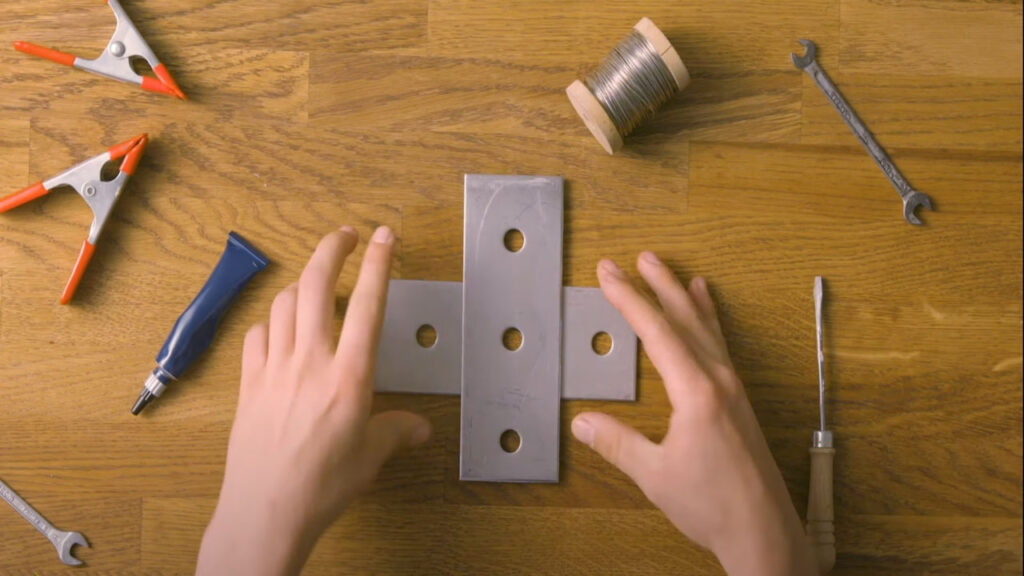
Read More About Is Wood Glue And Sawdust Stainable : A Guide to DIY Woodworking
Does Super Glue Work On Metal To Plastic?
Yes, super glue can be effective for bonding metal to plastic. However, the success of the bond depends on factors like the specific types of metal and plastic, surface preparation, and the intended use.
Which Is Better For Gluing Metal, Super Or Gorilla Glue?
For metal bonding, Gorilla Glue (polyurethane) often outperforms super glue. It offers stronger adhesion, better gap filling, and more flexibility. However, prep work is crucial for both for optimal results.
| Feature | Super Glue | Gorilla Glue |
| Bonding speed | Very fast (sets in seconds) | Slower (cures in hours) |
| Bond strength | High | High |
| Flexibility | Rigid | More flexible |
| Gap filling | Limited | Good |
| Surface preparation | Crucial (clean, dry) | Important (clean, dry) |
| Moisture resistance | Moderate | High |
| Heat resistance | Moderate | High |
| Suitability for different metals | Most metals | Most metals |
| Ideal for | Small repairs, low-stress applications | Larger repairs, high-stress applications, outdoor use |
Is Super Glue A Good Glue?
Whether super glue is a “good” glue depends on the specific application and your needs. Super glue can be a useful tool for specific situations, but it’s not a universal solution. Here’s when it might be a good choice:
- Quick repairs: Fixing small cracks, loose parts, or attaching lightweight objects.
- Low-stress applications: Bonding items that won’t experience significant pressure or movement.
- Temporary solutions: When a more permanent fix is not immediately needed.
Does Super Glue Fall Off?
Super glue generally does not “fall off” on its own once it forms a proper bond. It’s known for its strong adhesive properties that create a lasting connection between various materials.
How Strong Is Super Glue?
Super glue can achieve tensile strengths ranging from 2,000 to 5,000 psi (pounds per square inch), depending on the factors mentioned above. This means it can potentially withstand a pulling force of up to 5,000 pounds per square inch of bonded area.
Factors Affecting Super Glue Bond
- Surface preparation: Improper cleaning or insufficient drying can lead to a weak bond that might eventually fail.
- Material compatibility: Not all super glues work well with all materials. Choosing the right type for the specific surfaces is crucial for optimal adhesion.
- Application technique: Following proper application instructions, including applying the correct amount and ensuring proper contact between surfaces, is essential for a strong bond.
- Environmental conditions: Extreme temperatures, moisture, or UV exposure can degrade the bond over time, potentially leading to failure.
How Long Does Super Glue Take To Dry On Plastic?
Super glue sets very quickly on plastic, typically within seconds to a minute. While super glue sets quickly on plastic, full curing can take up to 24 hours.
Does Super Glue Have Metal In It?
No, super glue does not contain metal. The main component of super glue is a group of chemicals called cyanoacrylates. These are synthetic compounds formed from the reaction of cyanoacrylic acid and various alcohols.
What Is The Strongest Glue For Metal To Metal?
The strongest glue for metal to metal bonding is generally considered to be epoxy adhesives. These two-part adhesives consist of a resin and a hardener that, when mixed together, create a strong, permanent bond.
Here’s why epoxy adhesives are often the best choice for metal-to-metal bonding:
- Epoxies can achieve very high bond strengths, often exceeding 3,000 psi.
- Epoxies can bond a wide range of metals, including steel, aluminum, brass, and copper.
- Unlike super glue, epoxies can effectively fill small gaps between metal surfaces, creating a more even and secure bond.
- Epoxies are resistant to moisture, chemicals, and extreme temperatures, making them suitable for long-lasting repairs and outdoor use.
What Is Best Glue For Metal?
For strong, permanent metal bonding, epoxy adhesives reign supreme. They offer high strength, gap filling, and durability, making them ideal for various metal types and applications.
Is Super Glue Or Epoxy Better?
Here’s a breakdown of their pros and cons to help you decide:
Super Glue:
Pros
- Fast setting: Bonds within seconds to a minute.
- Easy to use: Comes in convenient applicators, requiring minimal preparation.
- Versatile: Bonds various materials, including metal, plastic, and wood.
Cons
- Limited bond strength: Not as strong as epoxy, especially for long-term or high-stress applications.
- Limited gap filling: Struggles to bond surfaces with unevenness or gaps.
- Brittle: Not ideal for applications requiring flexibility.
Epoxy:
Pros
- Stronger bond: Offers superior bond strength compared to super glue, making it suitable for demanding applications.
- Gap filling: Can effectively fill small gaps between surfaces, creating a more secure bond.
- More durable: Resistant to moisture, chemicals, and extreme temperatures, ideal for long-lasting repairs and outdoor use.
Cons
- Slower curing: Takes longer to cure than super glue, often requiring hours or even days.
- Mixing required: Comes in two parts (resin and hardener) that need to be mixed before use.
- Less versatile: Primarily used for bonding similar materials like metal to metal.
Here’s a general guideline to help you choose:
- For quick fixes and low-stress applications: Super glue might be sufficient.
- For stronger, more durable bonds, larger repairs, or outdoor use: Epoxy is generally the better choice.
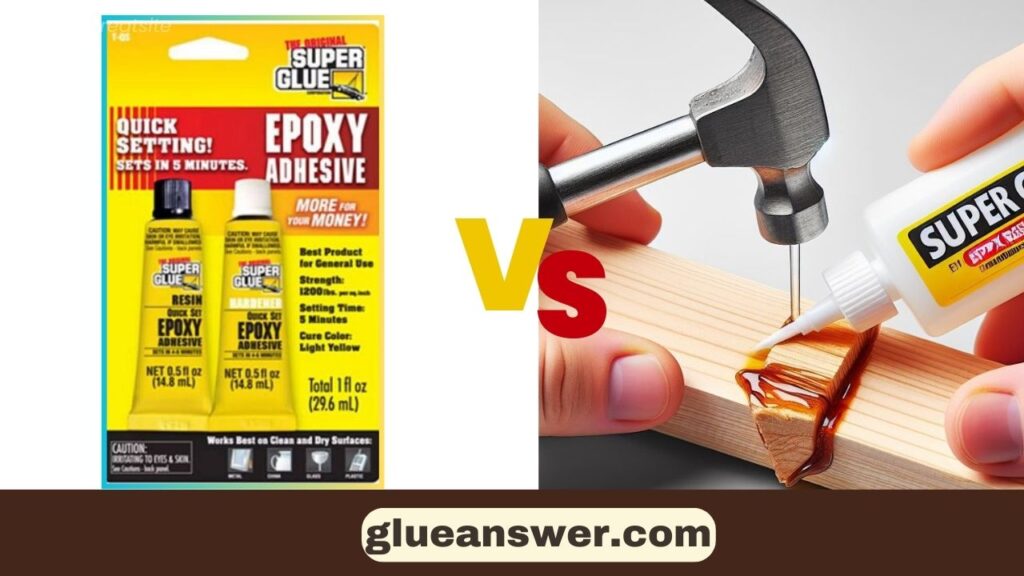
Read Also Wood Glue FAQ
How Do You Glue Metal To Metal?
Here’s a guide on how to effectively glue metal to metal:
1. Choose the right adhesive
- Epoxies: Best for strong, permanent bonds, gap filling, and various metals.
- Anaerobic adhesives: Suitable for threadlocking applications.
- Weldable adhesives: Offer a weld-like bond without heat.
2. Prepare the metal surfaces
Remove dirt, grease, and oil using a degreaser or rubbing alcohol.
3. Apply the adhesive
Mix the resin and hardener according to instructions. Apply a thin layer of adhesive to one surface.
4. Join the metal pieces
Press the pieces together firmly and hold for the recommended time. Use clamps or weights to maintain pressure during curing.
5. Allow curing
Refer to the adhesive’s instructions for curing time, which can range from minutes to hours or even days. Avoid disturbing the bonded parts during this time.
Loctite Super Glue Instructions
- Clean and dry surfaces.
- Apply a thin layer of glue to one surface.
- Press parts together firmly for 15-30 seconds.
- Hold for 5 minutes, then let cure for 24 hours.
Does Super Glue Work On An Aluminum Can?
Super glue might be a temporary solution for minor repairs on an aluminum can, it’s not the most reliable or long-lasting option. Consider using epoxies or metal-specific adhesives for stronger, more durable results.
Does Krazy Glue Work In Metal?
Yes, Krazy Glue works on metal, but with limitations. It offers a quick fix for small repairs, but for strong, durable bonds, consider epoxies or metal-specific adhesives.
What Will Super Glue Not Stick To?
While super glue is known for its strong adhesive properties, it doesn’t adhere well to all materials. Here are some surfaces where super glue typically struggles:
- Non-porous surfaces
- Metals with very smooth finishes:
- Plastics like Teflon, polyethylene, and polypropylene
- Glass and glazed ceramics
- Wet or oily surfaces
- Flexible materials
- Large gaps or uneven surfaces
Alternatives To Super Glue For Metal
Here are some alternatives to consider for stronger, more durable bonds:
- Epoxy Resin
- Cyanoacrylate Gel
- J-B Weld
- Metal Epoxy Putty
- Metal Welding
- Polyurethane Adhesive
- Anaerobic Adhesive
- Metal-Filled Epoxy Adhesives
Types of Metals Compatible with Super Glue
Here’s a breakdown of its compatibility with different types of metals:
1. Generally compatible metals
- Steel
- Aluminum
- Brass and copper:
2. Metals with limited compatibility
- Smooth, non-porous metals
- Oxidized metals
Factors To Consider When Using Super Glue On Metal
Here are some key factors to keep in mind:
1. Surface Preparation: Clean the metal surfaces thoroughly to remove any dirt, grease, oil, or rust. Use a solvent like acetone or isopropyl alcohol to clean the surfaces. Sand or roughen the metal surfaces slightly to improve adhesion. This provides more surface area for the glue to bond to.
2. Material Compatibility: Ensure that the super glue you are using is compatible with metal. Cyanoacrylate-based super glues are generally suitable for bonding metal.
3. Temperature and Environmental Conditions: Most super glues work best at room temperature, and excessive heat or cold can affect the bonding process.
4. Gap Size: If there are larger gaps or irregularities, consider using an epoxy or another adhesive designed for such conditions.
5. Clamping and Holding Time: Applying pressure during the curing process can enhance the bond strength.
6. Curing Time: Allow sufficient time for the glue to cure.
7. Ventilation: Work in a well-ventilated area, as super glue fumes can be strong. Avoid inhaling the fumes and take necessary precautions.
How To Remove Super Glue?
Here are a few options:
1. Acetone
This is a common solvent for super glue. Apply a small amount of acetone to a cotton swab or rag and gently rub the glued area. Be careful, as acetone can damage some plastics and finishes.
2. Commercial super glue remover
These removers are specifically formulated to dissolve super glue and are often less harsh than acetone. Follow the instructions on the product label.
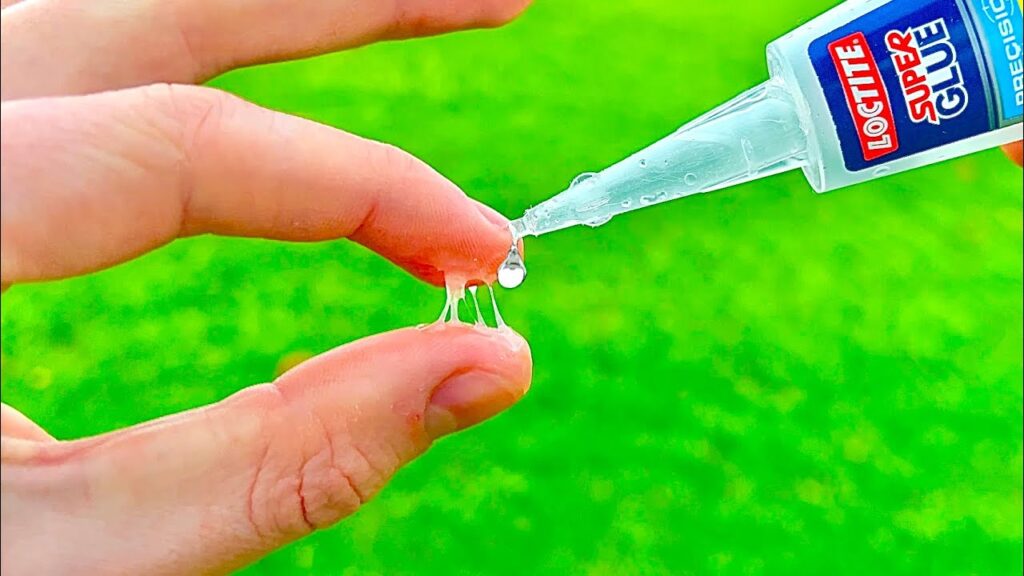
How Do You Make Super Glue Stronger?
To enhance the strength of super glue, ensure surfaces are clean and dry before application. Increase bonding by roughening surfaces with sandpaper, and use minimal glue for a thin, even layer.
Applying slight pressure during drying can improve adhesion. Consider using a cyanoacrylate accelerator for faster curing and increased strength.
How To Glue Metal To Rubber
For strong metal-to-rubber bonding, use cyanoacrylate-based super glue or rubber-specific adhesives. Ensure clean, dry surfaces and apply gentle pressure during curing.
How to Use Super Glue on Metal Surfaces
- Clean and dry metal surfaces thoroughly. Remove dirt, oil, and grease with degreaser or rubbing alcohol.
- Apply a thin layer of super glue to one clean, dry surface.
- Press the metal parts together firmly and hold for the recommended time (usually 15-30 seconds).
- Use clamps or weights to maintain pressure during curing, especially for larger or heavier objects.
- Allow the bond to cure completely for at least 24 hours before applying stress or strain.
FAQs
Can Gorilla super glue be used on metal?
Gorilla Super Glue can be used on metal, but with limitations. It offers a quick fix for small repairs, but for stronger, long-lasting bonds, consider epoxies or metal-specific adhesives.
How do you glue cheap metal?
For cheap metal, consider cyanoacrylate super glue for small repairs or epoxy for stronger, more durable bonds. Ensure proper surface preparation and choose the adhesive based on your specific needs.
How long does super glue last?
Sealed super glue can last up to 12 months, while opened tubes typically last 4-8 weeks.
Is super glue stronger?
Super glue is not always stronger than other adhesives. It offers fast bonding and convenience.
What glue is stronger than super glue?
Epoxies generally offer superior strength compared to super glue, making them ideal for demanding applications requiring a strong, durable bond.
Is super glue liquid or gel?
Super glue comes in both liquid and gel forms. Liquids offer faster setting times, while gels provide better control and are ideal for vertical applications or uneven surfaces.
What is super glue full name?
Super glue’s full name is cyanoacrylate adhesive. It gets its name from the chemical compound it’s based on, cyanoacrylate.
Is super glue heat proof?
No, super glue is not generally heat proof. Most formulations start to lose their strength at temperatures exceeding 150-200°F (65-93°C).
What is the fastest super glue?
Gorilla Super Glue is the fastest super glue.
Is super glue resistant to water?
Most super glues are water resistant after they cure completely, but not entirely waterproof. Prolonged or intense water exposure can weaken the bond.
Conclusion
So, we hope you got the answer of does super glue work on metal. Yes, super glue is generally effective on metal surfaces, providing a strong and durable bond when used according to instructions.






